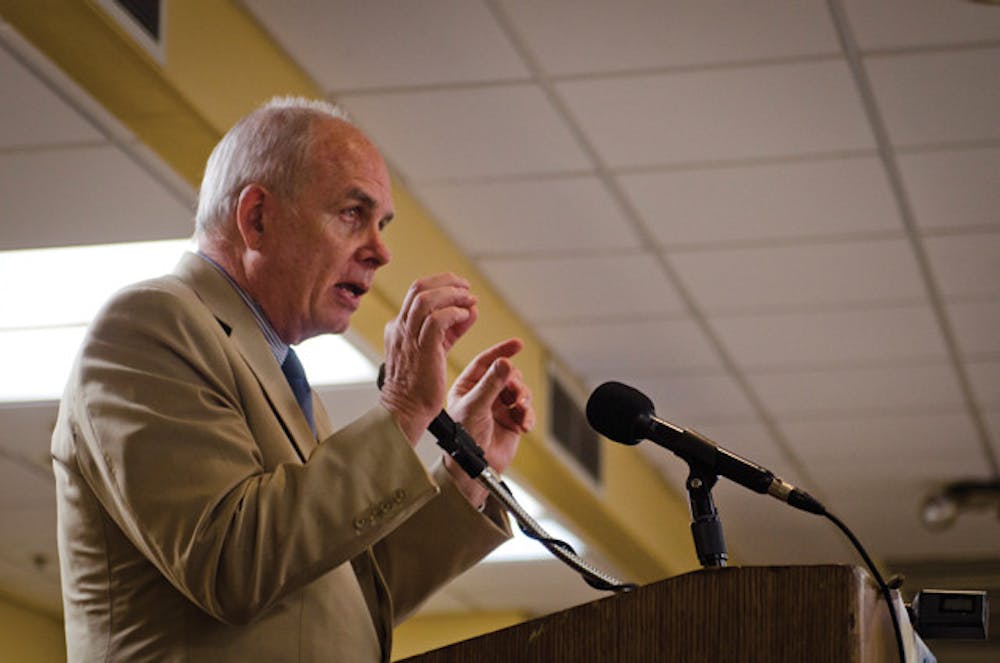UF employees will keep their jobs, but students can expect to see a 15 percent tuition increase as a result of statewide budget cuts for education that were approved in the last Florida legislative session.
In a speech given to the Rotary Club of Gainesville at the Paramount Plaza Hotel on Tuesday, UF President Bernie Machen announced this and other plans to combat budget cuts - cuts that have hit the university for the fourth time in the past five years This round of cuts will leave the university with a budget about $54 million lighter than last year.
"We're not overjoyed having the fourth budget cut in five years," Machen said in an interview, "but I can see how we can get through it without dismantling programs."
Rather than cutting personnel or programs, the university will look to other methods to reduce the budget.
For example, UF is discussing plans to increase tuition, rearrange employee benefits and use money typically reserved for university purchases toward existing programs.
The state legislature approved an 8 percent tuition increase, and UF plans to bridge the budget gap by seeking the Board of Governors' approval to increase tuition by the maximum of 15 percent.
Students' pockets will take an additional hit in the fall as Florida legislators decided to cut Bright Futures scholarships by about 20 percent.
Students aren't the only ones affected by the state's cutbacks.
Under another bill passed by the legislature, state employees will be required to contribute 3 percent of their salaries to their retirement plans beginning July 1.
Machen said he sees this as an additional budget cut for UF employees and is looking into benefit changes that may allow the university to compensate for this reduction in salary.
He also addressed the legislature's approval of a new program that will give incoming students the option to take on-campus classes only during the spring and summer semesters.
The program, to be implemented in January 2013, could bring up to 2,000 new students to the university.
In addition, UF is looking into actions such as expanding distance-learning programs and increasing out-of-state student enrollment as part of a three-year plan to generate revenue in case state funding doesn't rebound.
"We're not assuming that it's going to get a lot better," Machen said. "We're just hoping it doesn't get a lot worse."






